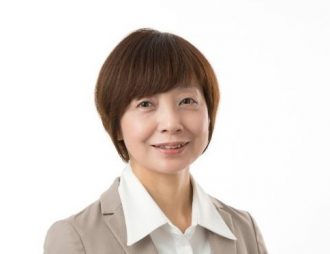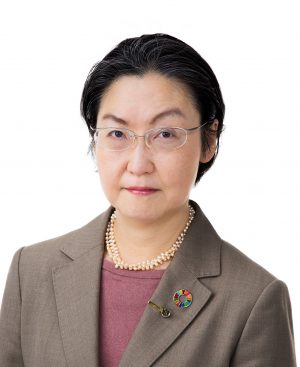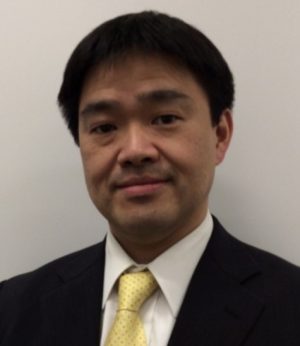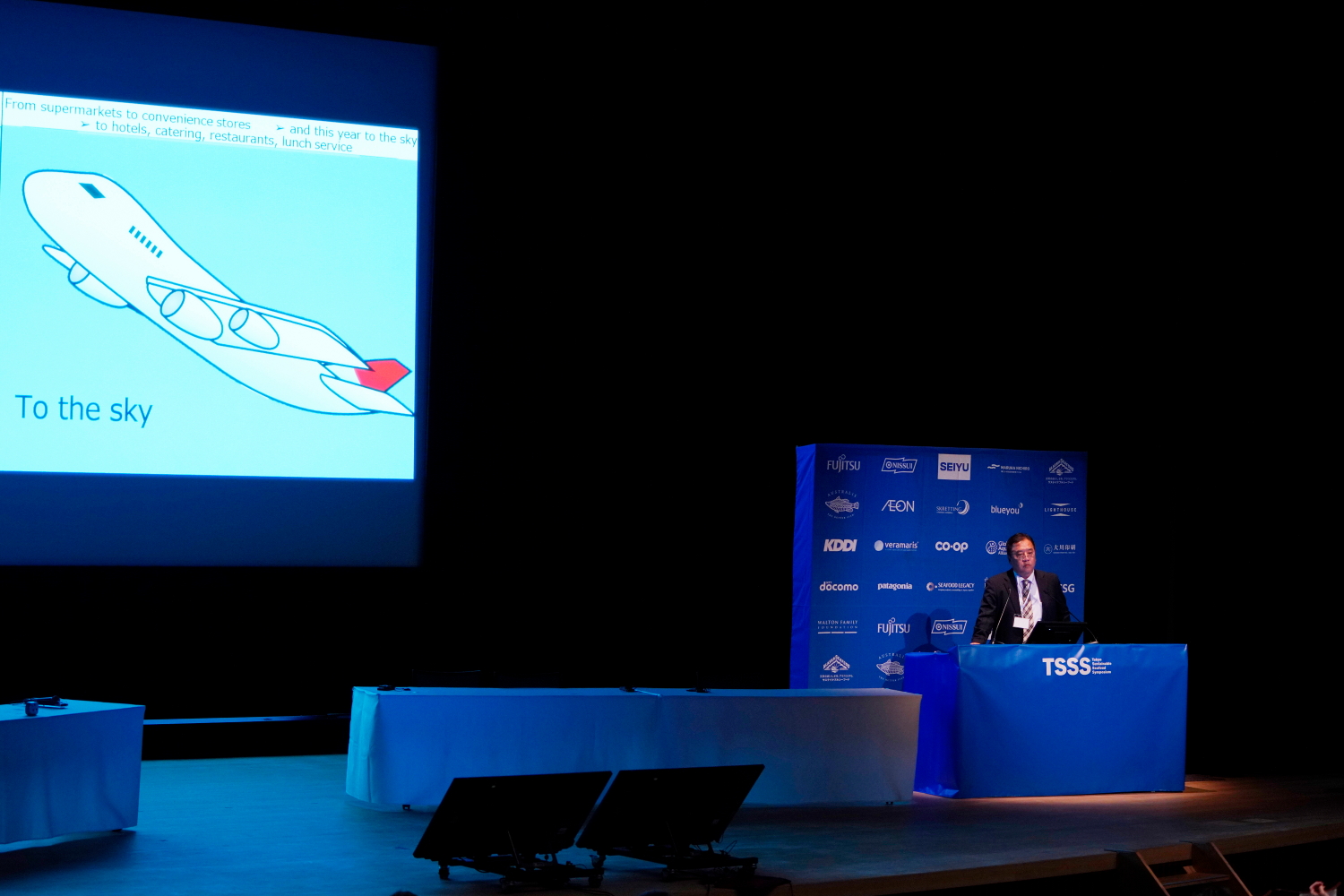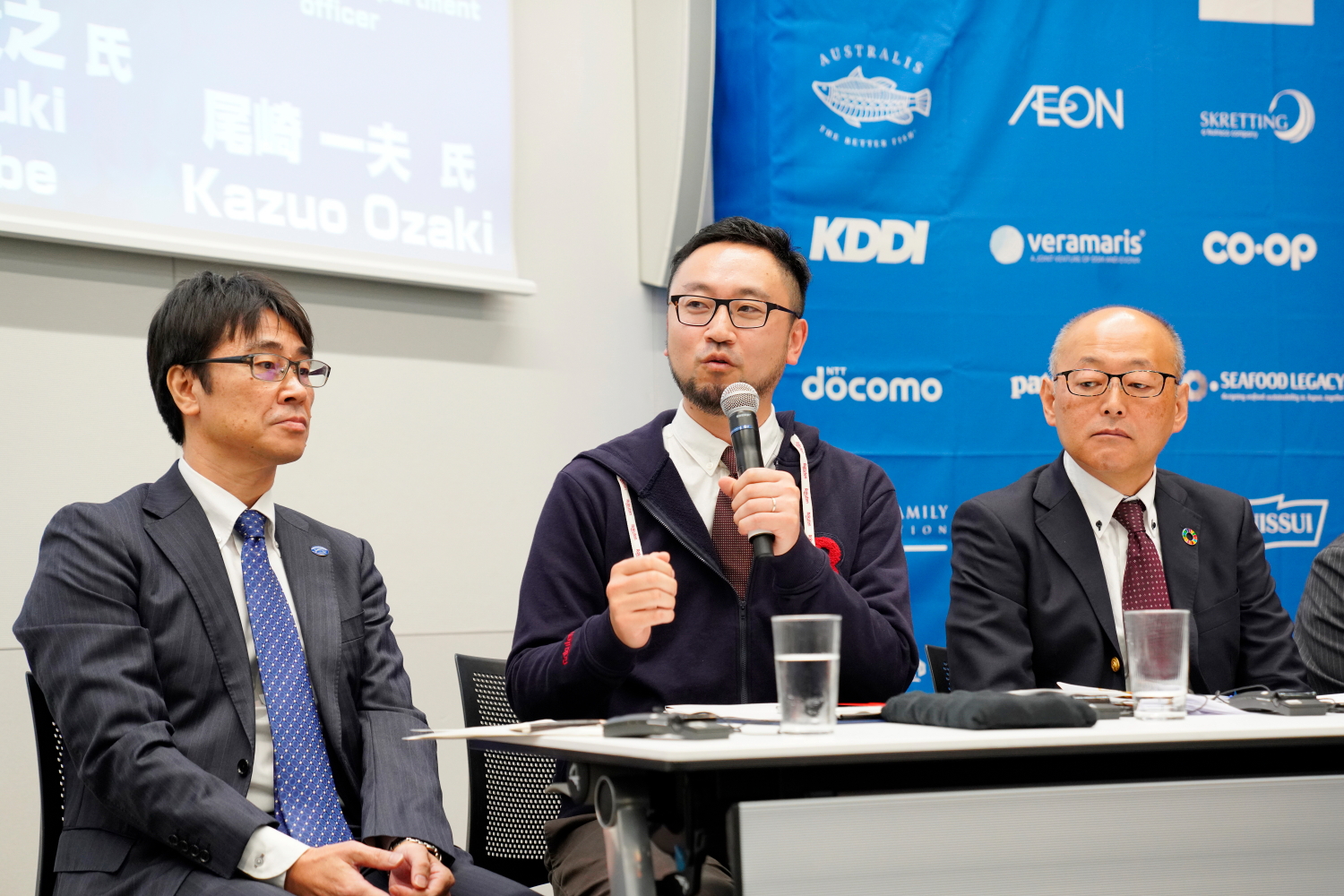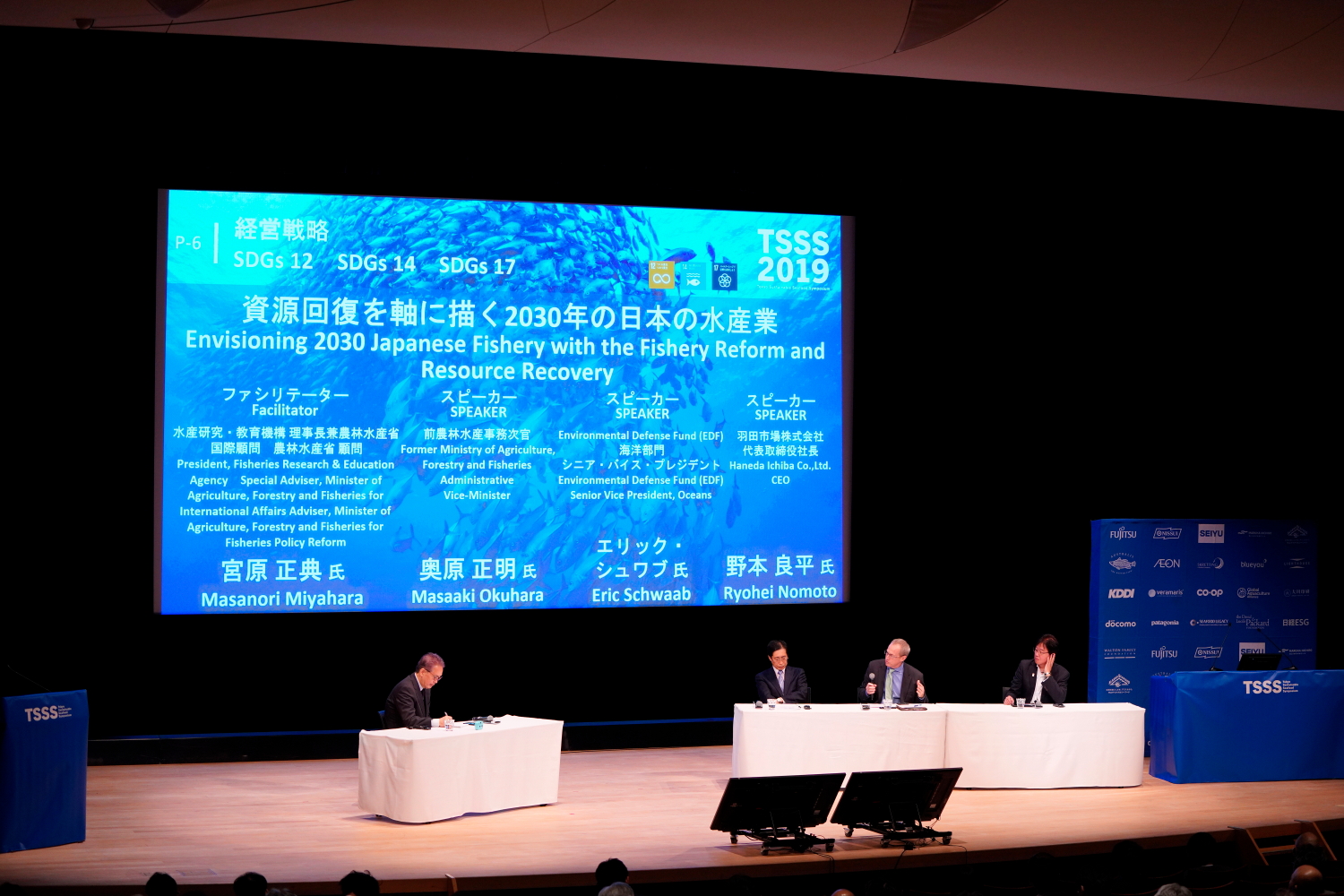P-10 Measuring the Progress Towards SDGs
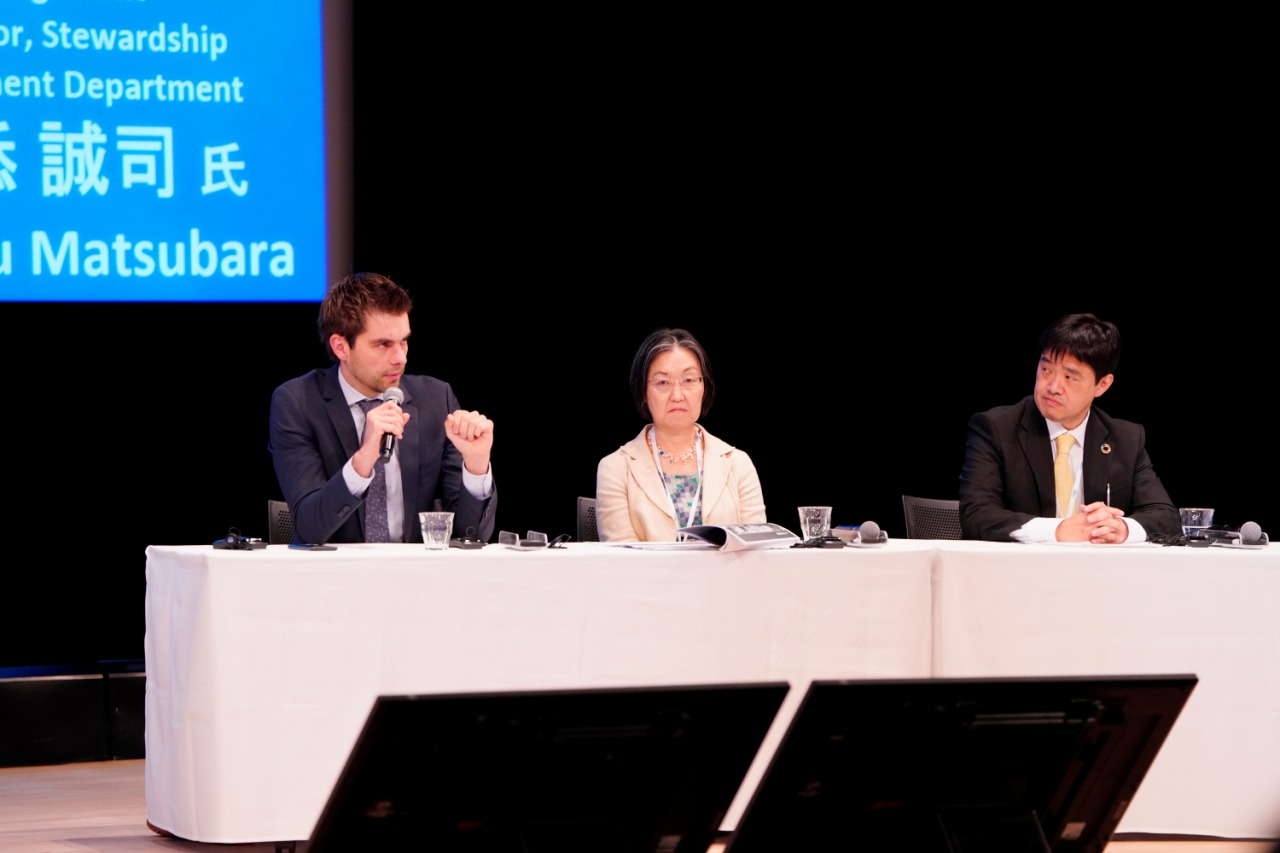
The World Benchmarking Alliance, Evaluating the Top 2,000 Global Businesses
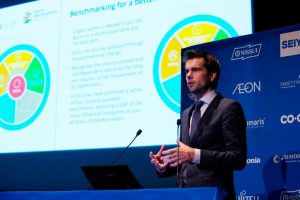
Based in Amsterdam and London, the World Benchmarking Alliance is a nonprofit organization that evaluates the impact of leading businesses in achieving the SDGs. The WBA evaluates 2,000 of the most influential businesses in each field and publishes those results to the public. WBA evaluates the seafood industry under the unique Seafood Stewardship Index (SSI). The SSI looked at 30 seafood companies. These are leading players, of which six are Japanese companies.
Ms. Kawaguchi stated that with an increasing sense of crisis in the world, Japanese companies hold great responsibility. The scale of ESG investment is 3.3 quadrillion yen worldwide (2018) and 230 trillion yen in Japan alone. Japanese ESG investment figure quadrupled between 2016 and 2018. As the scale of ESG investment increases, investors started widening their scopes, such as natural resources. Ms. Kawaguchi stated that, if we are to consider nature as a source of capital, then, as investors and financial institutions, we must check the integrity of our capital. However, up until now, we have refused to do this. The score of 2.7/5 received by the leading company in the SSI is clear evidence of this.
Issues with Seafood Sustainability, Facing the Reality of the Situation that Japan Neglected
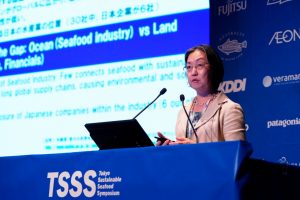
Ms. Kawaguchi continued that not recognizing the fact that we bear significant responsibility for the current state of marine resources is a risk for all Japanese companies. She then went on to warn that, “It is surprising that, despite rankings like WBA being published in public, we neglected to deal with the issues. While it is true that the topic of human rights issues is relatively new to Japan, it is not somebody else’s business.” Mr. Kawazoe also stated, “While climate change may currently be the number one topic relating to sustainability, the reason that it is an issue is that it is related to the food problem that affects the very roots of human society.”
Why has Japan, known as one of the leading seafood industries in the world, been neglecting these issues? A question arose in the discussion.
“One of the issues is the lack of information disclosure,” Mr. Haverkamp stated. Not only the seafood industry, but Japanese companies are generally unfamiliar with the viewpoints of civil society and do not have a culture of disclosing information. Further, the seafood industry is built upon its unique and extensive network of affiliated companies, and it is not very easy to implement the company’s policies and governance strictly.
To Turn Science Into Action, We Must Make the Information Easily Understood
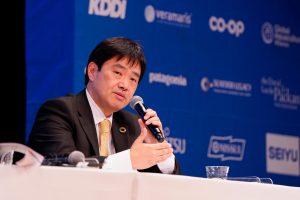
Mr. Kawazoe stated that “transparency is essential in the disclosure of non-financial information. Up until now, there have been no tools available for investors to perceive businesses as a whole. WBA played a significant role in placing the information in the public eye.”
While scientific data relating to the ocean and marine resources exists, it must be translated in a way that investors can comprehend. That is the 1st step for “turn science into action,” Mr. Haverkamp concluded the session.
